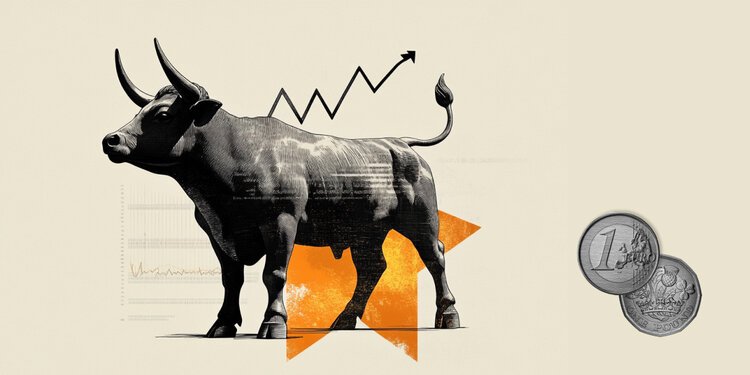- Euro/GBB strengthens approximately 0.8660 in the early European session on Monday.
- The French Prime Minister will retain confidence on September 8, and restore fears of stagnation.
- Analysts expect that the Bank of England will not reduce interest rates during the remaining period of the year.
Cross EUR/GBP acquires a momentum to about 0.8660 during the early European trading hours on Monday. The most heated initial reading of the initial report of the Consumer Prices Index in Germany (CPI) provides some support to the euro (EUR). The President of the European Central Bank (ECB) is scheduled to speak Christine Lagarde later on Monday.
Modern German inflation data showed that the country’s consumer price index increased by 2.2 % year on year in August, compared to 2.0 % in July, which exceeds 2.1 % estimate. HICP increased by 2.1 % yearly in August compared to 1.8 % before, higher than a 2.0 % consensus. The high inflation has led to uncertainty about the actions of the future European Central Bank and the push of investors to reassess the possibility of European Central Bank’s price discounts.
However, France is facing a new political crisis, as Prime Minister Francois Bayro is expected to lose confidence. Reuters opinion polls showed that most French now want new national elections, noting that dissatisfaction with politics and the risk of permanent uncertainty. This, in turn, may exercise some pressure pressure on the common currency. Traders will take more signals from Flash Flash Index for Consumer Prices Data (HICP) from the euro area, which is scheduled to be later on Tuesday.
On the other hand, traders reduce their bets on interest rates on the Bank of England (BOE) after a series of economic data, which may support GBP. It also argued by the MPC Monetary Policy Committee (MPC) last week in favor of detention of interest rates at its current levels for a longer period, with inflationary pressures turning until fixed.
Stering questions and answers to the pound
The British pound (GBP) is the oldest currency in the world (886 AD) and the official currency of the United Kingdom. It is the fourth most trading foreign unit (FX) in the world, as it represents 12 % of all transactions, with an average of 630 billion dollars a day, according to 2022 data.
Their main trading pairs are GBP/USD, also known as “Cable”, which represents 11 % of FX, GBP/JPY, or “dragon” as is known by merchants (3 %), and EUR/GBP (2 %). The pound was released by the Bank of England (Bank of England).
The only most important factor that affects the value of the British pound is the monetary policy decided by the Bank of England. The Bank of England is based on its decisions on whether it has achieved its primary goal of “stability in prices” – a fixed inflation rate of about 2 %. Its primary performance to achieve this is to adjust interest rates.
When inflation is very high, the Bank of England will try to make interest by raising interest rates, making it more expensive for people and companies to reach credit. This is generally positive for GBP, as higher interest rates make the UK a more attractive place for global investors to stop their money.
When inflation decreases significantly, economic growth slows down. In this scenario, the Bank of England will consider reducing interest rates to licensing credit so that companies borrow more to invest in growth generation projects.
Data affects the health of the economy and can affect the value of the pound sterling. Indicators such as gross domestic product, manufacturing, services, and employment can affect the GBP direction.
The strong economy is useful for sterling. Not only attracts more foreign investments, but it may encourage the Bank of England to set interest rates, which will enhance the GBP directly. Otherwise, if the economic data is weak, it is possible that the pound sterling will fall.
Issuing another important data for the British pound is the balance of trade. This indicator measures the difference between what a country gains from its exports and what it spends on imports during a certain period.
If a country produces very desirable exports, its currency will benefit from the additional demand resulting from foreign buyers who seek to buy these goods. Therefore, the positive and positive trade balance enhances the currency and vice versa to achieve a negative balance.
Source: https://www.fxStreet.com/news/eur-gbp-holds-positive-ground-abave 08650-on-hotter-than-dected-german-cPi-data-2025090106064
